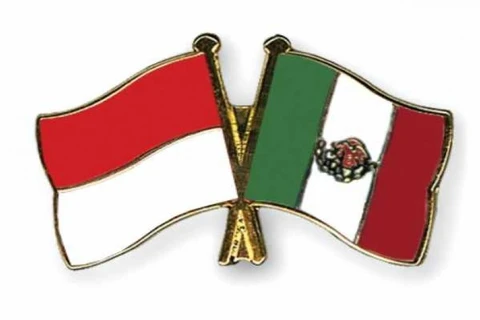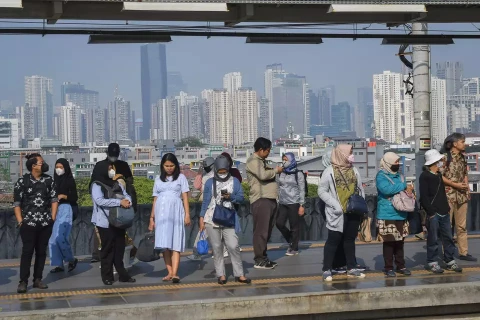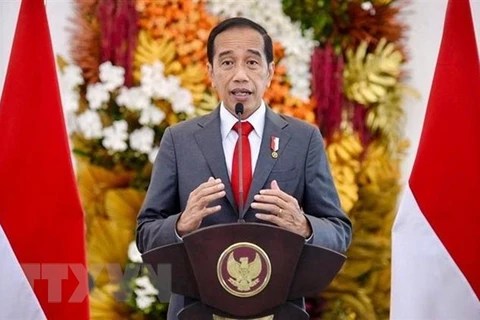Jakarta (VNA) - Indonesia's inflation is among the lowest worldwide, with the Consumer Price Index (CPI) inflation falling more quickly and returning closely to its target of 3%, said a local official.
Bank Indonesia (BI) Governor Perry Warjiyo was quoted by local media as saying that Indonesia's inflation fell from 5.51% at the end of 2022 to 3.08% in July 2023 year-on-year, one of the lowest in the world.
The decline in inflation occurred in all groups, including core inflation, volatile food prices, and prices regulated by the Indonesian government, he said.
He noted that this achievement was the result of close synergy in controlling inflation between the central and regional governments and the consistency of BI policies in central and regional inflation control teams.
BI estimates that inflation in 2023 will remain under control within the target of 3% with a margin of 1%, and it is even likely to be around 3% at the end of 2023.
However, the official reminded that the inflation still needs to be reduced to the target of 2.5% with a margin of 1% in 2024.
He highlighted that the BI will continue to strengthen its policy mix in maintaining stability and supporting economic growth by coordinating with the government. Monetary policy is also consistently directed towards pro-stability to control inflation and stability of the rupiah exchange rate.
He said that loose and pro-growth macroprudential policies are carried out through large liquidity incentives reaching 158 trillion Rp (around 10,4 billion USD) for banks to channel credit and financing to priority sectors.
The acceleration of digitalisation of the payment system is also pro-growth, including expanding QRIS, distributing social assistance, and electronifying the regional financial transactions, he underlined./.
Bank Indonesia (BI) Governor Perry Warjiyo was quoted by local media as saying that Indonesia's inflation fell from 5.51% at the end of 2022 to 3.08% in July 2023 year-on-year, one of the lowest in the world.
The decline in inflation occurred in all groups, including core inflation, volatile food prices, and prices regulated by the Indonesian government, he said.
He noted that this achievement was the result of close synergy in controlling inflation between the central and regional governments and the consistency of BI policies in central and regional inflation control teams.
BI estimates that inflation in 2023 will remain under control within the target of 3% with a margin of 1%, and it is even likely to be around 3% at the end of 2023.
However, the official reminded that the inflation still needs to be reduced to the target of 2.5% with a margin of 1% in 2024.
He highlighted that the BI will continue to strengthen its policy mix in maintaining stability and supporting economic growth by coordinating with the government. Monetary policy is also consistently directed towards pro-stability to control inflation and stability of the rupiah exchange rate.
He said that loose and pro-growth macroprudential policies are carried out through large liquidity incentives reaching 158 trillion Rp (around 10,4 billion USD) for banks to channel credit and financing to priority sectors.
The acceleration of digitalisation of the payment system is also pro-growth, including expanding QRIS, distributing social assistance, and electronifying the regional financial transactions, he underlined./.
VNA























